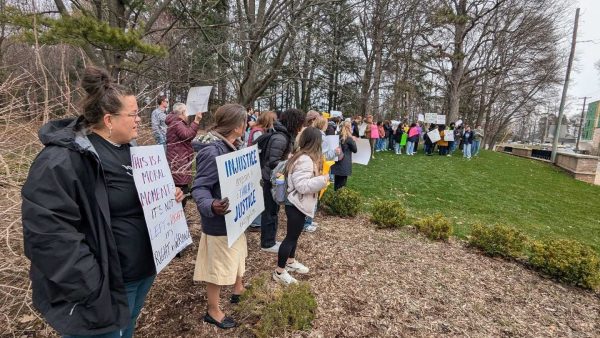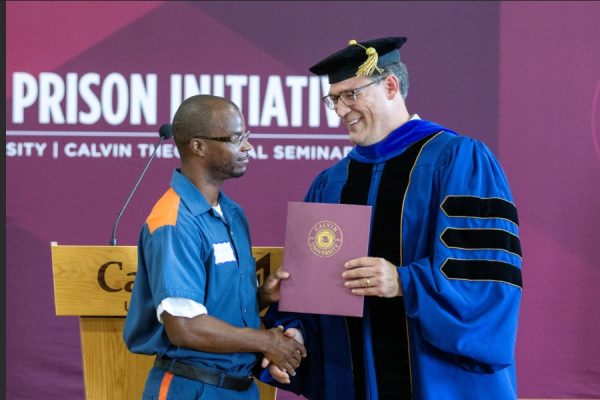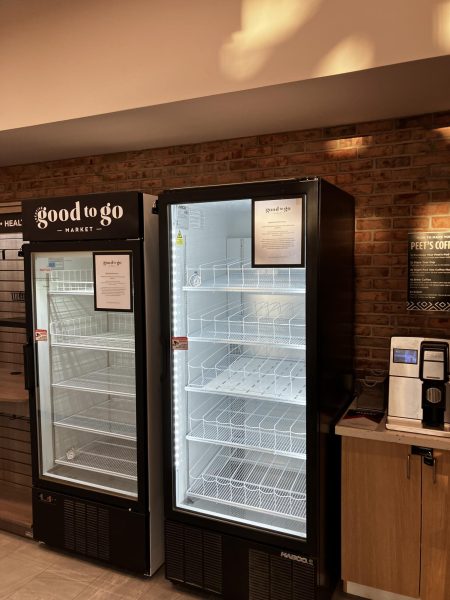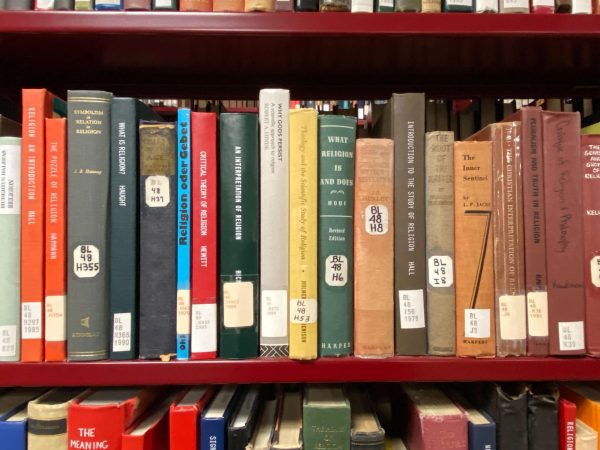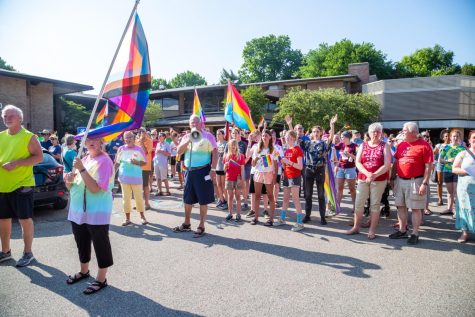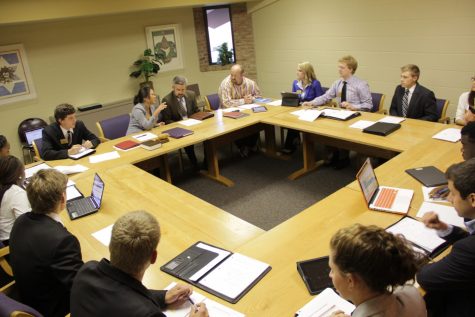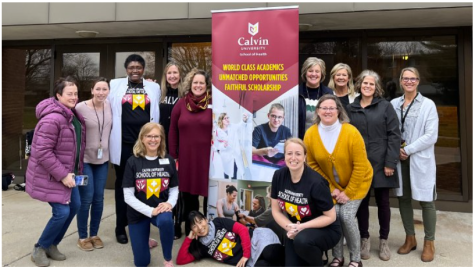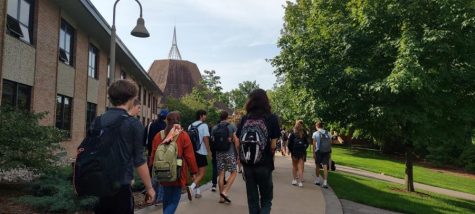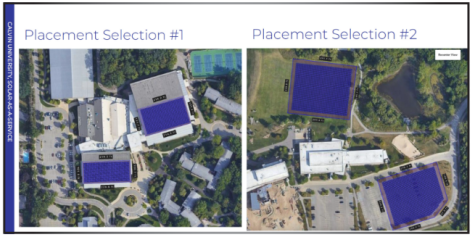Preparations for new four-two credit system near completion
Calvin is almost ready to transition to a four-two credit hours system next fall following 10 months of effort by faculty to prepare the new system. The transition is an effort to streamline use of teaching staff.
Most classes offered by Calvin in the humanities, arts and social sciences have historically been worth three credit hours, while many in the maths and sciences have been worth four credit hours. Starting next fall, all courses — excluding music ensembles and PER courses — will count for either four or two credit hours.
A document recommending the change — initiated by Provost Noah Toly — was introduced to faculty senate by the Educational Policy Committee (EPC) on Dec. 14, 2021, according to Jennifer Holberg, chair of the English department, who serves on the EPC.
“[Provost Toly] has seen it work at other places, and so as he was thinking about his vision for the university, this felt like a change that he thought would be a good one,” Holberg said.
Most four-credit classes will meet two or three times a week over the semester, with longer class blocks than current three-credit classes. Many two-credit classes will meet a comparable number of times per week, but only last half a semester.
Finances, class sizes and adjunct use were major factors in the decision to switch credit systems, according to the recommendation released to faculty senate.
After the Voluntary Exit Incentive Program, which incentivized early retirement for experienced faculty members in an effort to trim costs without cutting positions, departments were left with fewer full-time faculty members. This resulted in larger class sizes, higher adjunct use and increased workloads for professors.
The recommendation said that the four-two credit hours transition would allow the university to save “more than $3 million per year” without increasing class size or adjunct use.
Under the four-two credit hours system, faculty will teach six four-credit classes instead of seven three-credit classes. This will enable departments to offer more credit hours with limited faculty numbers, without adding courses to faculty’s workloads.
The four-two credit hours system poses possible educational benefits as well, according to Holberg.
“As we think about how students learn, this idea of being able to go deeper, and having fewer courses, but having those courses be really meaningful … we’re hoping that faculty will be able to use it that way,” Holberg said.
Faculty senate passed the recommendation without objection in Jan. 2022, according to Holberg. After a new core was approved in mid-March, faculty began working on departmental plans for the transition.
“It was a heavy lift over the summer for every department — making decisions about whether three-credit classes would become two or four credits,” Mark Mulder, professor of sociology, said.
One challenge, according to Mulder, was making these changes “without much ability to discern how these decisions would play out and match student demand in the future.”
These departmental plans were due in July, at which point the EPC began reviewing them. As of Nov. 2, all but two programs’ plans had been approved.
“The faculty worked really, really hard. This was an extra thing, but we made it, and now we’re looking ahead to [the] spring,” Holberg said.
The new credit system still has to be approved by the Higher Learning Commission (HLC), Calvin’s accreditation institution. The HLC will visit the university in 2024 to reaffirm accreditation. Some professors have expressed concern about how the HLC will react to the change, especially given Hope College’s unsuccessful attempt to move toward a four-two credit hours system.
Hope College, which currently operates on a four-two credit hours system, will be switching back to its original three-credit hours system in fall 2023. While Hope will continue to offer a handful of four-credit hour classes, those classes which met for three hours a week will now be considered three-credit hour classes.
According to a document released by the registrar’s office at Hope, this change is intended to “allow Hope to be clear with students and faculty about how much work is required in each course and how much contact students will have with professors.”
“What Hope did is alter the ratio [of class time to outside work], and we are not altering the ratio,” said Benita Wolters-Fredlund, dean of humanities, arts and social sciences.
According to Wolters-Fredlund, the Calvin transition taskforce was aware of the situation at Hope and has taken efforts to avoid a similar situation.
Both Holberg and Wolters-Fredlund told Chimes it was unlikely Calvin would be forced to go back to a three-credit hours system when the HLC visits.
“We did all of this work anticipating that [the HLC] would have questions and want evidence,” Wolters-Fredlund said.
Part of that work included simulating student course plans. “[The departments] also took a student who started last year, two years ago, and mapped out what it would look like as they go into the transition,” said Wolters-Fredlund.
While the transition has resulted in considerable extra work for faculty, the transition should not affect students’ ability to graduate on time. Programs were not allowed to grow by more than one credit hour, according to Holberg and Wolters-Fredlund.
“Departments will be having extra informational meetings. Faculty are going to be setting aside extra time to help students think about what the four-two [credit hours] transition looks like for them specifically,” Holberg said.
According to Holberg, the new schedule should be available to students in February, and that students should expect to hear more information from their departments at that time.





